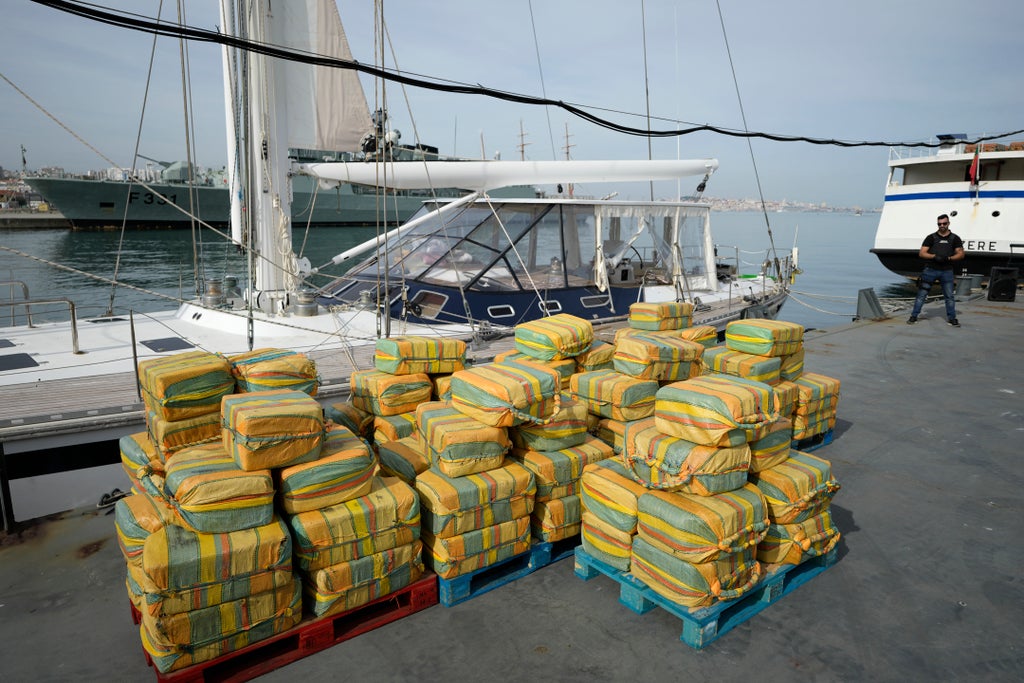
Records amounts of cocaine are being seized in Europe while manufacturing of the drug is now taking place inside the the European Union, officials in charge of fighting and monitoring drugs use in the bloc warned on Friday.
More than 214 tons of cocaine were seized in Europe in 2020, a 6% increase from the previous year, and experts from the European Monitoring Center for Drugs and Drug Addiction (EMCDDA) believe that amount could reach 300 tons in 2022.
With a market retail value estimated at 10.5 billion euros in 2020 and about 3.5 million European citizens reporting having used it in the past year, cocaine is the second most used drug in the EU after cannabis.
Its availability in Europe has never been higher, with extremely high purity and low prices.
While most cocaine manufacturing still occurs in Colombia, Peru and Bolivia, EU experts are worried by the processing now taking place inside the 27-nation bloc, particularly in Belgium, Spain and the Netherlands.
Between 2018 and 2020, 45 illicit production laboratories were discovered in the EU.
Speaking at a news conference in Brussels, Laurent Laniel, a scientific analyst at the EMCDDA, said that cocaine powder is often smuggled from South America to Europe in carrier materials such as charcoal and plastics, then extracted in local laboratories.
Alexis Goosdeel, the EMCDDA director, said the availability on the continent of large amounts of cocaine base and paste increases the risk of seeing new forms of highly addictive crack emerging on European markets.
“We are now facing a growing threat from a more diverse and dynamic drug market that is driven by closer collaboration between European and international criminal organizations," he said. “This has resulted in record levels of drug availability, rising violence and corruption, and greater health problems."
The expansion of the cocaine market also saw a rise in violence and corruption in the EU, with fierce competition between traffickers leading to a rise in homicides and intimidation.
“Violence nowadays is a key feature for criminal organizations to make sure that they are the strongest in their business area," De Bolle said. “The violence has also a direct impact on citizens on the streets because we see people dying on the streets in the European Union."
EU experts also looked at the growing methamphetamine market, which has been spreading in recent years after being initially concentrated in the Czech Republic and Slovakia. In 2020, a total of 215 methamphetamine laboratories were dismantled in the region, according to reports from nine EU countries.
According to Europol, the EU agency for law enforcement, European manufacturers of synthetic drugs are working in cahoots with Mexican cartels to increase production.
“We see a clear link, Europe-Mexico," said Europol's executive director, Catherine De Bolle. “Mexican people, drugs criminals from the cartels are active on the European soil. Chemists from Mexico come to the European Union because they are specialized in the production and in the use of methamphetamine. So we see that they are active in the labs."







